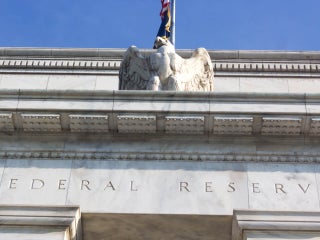Summary
Credit card users have robust protections under the CARD Act and other laws, while debit card users have fewer safeguards.
The content on this page is accurate as of the posting date; however, some of our partner offers may have expired. Please review our list of best credit cards, or use our CardMatch™ tool to find cards matched to your needs.
The American economy thrives on consumerism, with the act of shopping being as American as apple pie.
As an American consumer, not only do you have access to credit cards and debit cards to finance your purchases, you also have a variety of consumer rights in case anything goes wrong when it comes to paying for your purchases.
Credit card protections
Even at the point you start shopping for a credit card, the Credit Card Accountability Responsibility and Disclosure Act of 2009, which amended the Truth in Lending Act, kicks in.
The legislation was passed to “establish fair and transparent practices related to the extension of credit.” Issuers have to qualify you based on your “ability to pay” even before approving your credit card, or giving you a credit line increase. There are also restrictions on marketing of cards to students and people younger than 21.
This act governs various aspects of your credit card financing, including rules for how issuers can implement interest rate increases and penalty fees for late payments and going over your limit. For example, you can only go over your credit limit, and be assessed a fee for this, if you have previously opted into this feature.
The CARD Act also lays out how card issuers should manage your payments (including establishing when they are due and how to apply your interest payments to different outstanding balances you have, such as for purchases, balance transfers and cash advances).
And it calls for monthly statements to include information that can help you better manage your credit card account. For instance, a card issuer should tell you how long it would take to pay off your card balance, and how much total interest you would be charged if you only made your minimum payments each month.
The law also got rid of a practice called “double-cycle billing” that enabled issuers to use your balance in the previous billing cycle, along with your current balance, to determine your interest charges, even if you had paid off that balance. With the change, issuers are supposed to charge interest only as they relate to current balances.
See related: Best credit cards with extended warranty benefits
Fair Credit Billing Act
You also have the Fair Credit Billing Act to take care of your rights when you use your credit card to shop. If you are not happy with a shopping experience – for instance, you made an online purchase that didn’t arrive – you can take recourse to the FCBA. This act applies to credit card-related billing issues.
Some other rights that the FCBA gives credit card holders are:
- In case you did not authorize a charge (if you lost or misplaced your card, for instance), you will not be liable for more than $50 no matter how big the charge is.
- You can dispute charges that are incorrect – for instance, if a merchant overbilled you.
- Issuers cannot overlook giving you credit for payments or returns you make.
- If you see a charge you don’t recognize, you can ask for clarification and proof of purchase.
- Your issuer must send your credit card statement in a timely manner.
See related: When is a charge on a credit card unauthorized?
Disputing credit card charges
If you want to exercise your rights under the FCBA, you should write to your card issuer at its address for “billing inquiries,” providing a narrative of your issue as well as your name, address and account number. The Federal Trade Commission advises that you send this letter by certified mail and hold on to your receipt.
You should send this letter within 60 days after you received the statement with the error. The issuer should acknowledge your letter within 30 days of receiving it and will have to resolve your issue within two billing cycles after that. You won’t have to pay the disputed charges while an investigation is ongoing.
U.S. credit card users also enjoy consumer protections under the Fair Credit Reporting Act, the Fair Debt Collection Practices Act and the Equal Credit Opportunity Act.
Make it a point to get a free copy of your credit report from the credit bureaus (which is available for free every week from the credit bureaus through April 2022) so that you know in case something is amiss. For instance, you might find an account you did not open, which could point to identity theft.
See related: How to report and protect yourself from credit card fraud
Debit card protections
Unlike credit cards, debit cards don’t come with robust protections. You are using your own money, which is immediately debited from your bank account when you use your debit card to make a purchase.
The Electronic Fund Transfer Act is a law that gives consumers certain rights when it comes to debit card transactions. This law says that if you lose your debit card and report the matter before anyone rings up unauthorized charges, you are not liable for any misuse of the card.
If someone does make unauthorized use of your card before you report the matter, you would be responsible only for up to $50 of charges if you report it to your financial institution within two business days of discovering that your card is lost or stolen. After that, your loss could go as high as $500.
And if you don’t report any unauthorized transaction on your statement within 60 days after its mailing, your liability would be uncapped for transactions that occur after this 60-day period. Potentially, you could lose all the money in your bank account. In case you have overdraft protection a debit card thief could even draw on it.
If you don’t lose your physical card but someone used your card number to make unauthorized purchases, you will not be liable for those transactions if you report them within 60 days after your issuer mails your statement.
See related: Fintechs trying to make debit cards trendy
Debit card dispute investigations
Once you report that your card has been used for unauthorized transactions, the EFTA requires your bank to investigate the matter and resolve the issue within 45 days. If it’s a new account, a “point-of-sale” transaction or a foreign transaction, the investigation could extend to 90 days.
If an investigation takes longer than 10 business days, or 20 business days for a new account, the bank should put the disputed amount back into your account while it continues investigating.
In case the bank finds that there is no error, it should explain in writing to you why it came to that conclusion. It will also inform you that it has deducted any funds related to the matter that it previously credited to your account.
The Privacy Rights Clearinghouse advises that it is particularly risky to use debit cards at outdoor ATMs, gas pumps, online and at restaurants. These are places where your card is at high risk of being compromised by skimming devices and lax security.
At least one piece of legislation, the Debit Card Protection Act of 2014, has attempted to extend more robust protections to debit card users, but it hasn’t gained any traction.
Editorial Disclaimer
The editorial content on this page is based solely on the objective assessment of our writers and is not driven by advertising dollars. It has not been provided or commissioned by the credit card issuers. However, we may receive compensation when you click on links to products from our partners.



